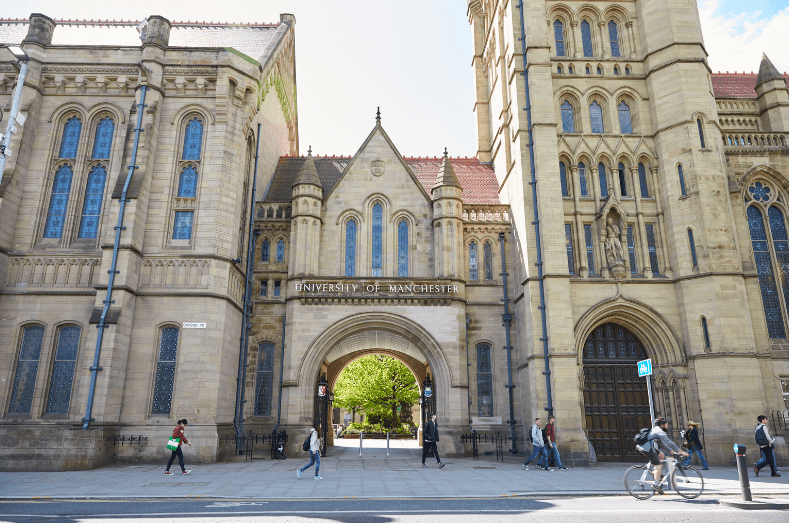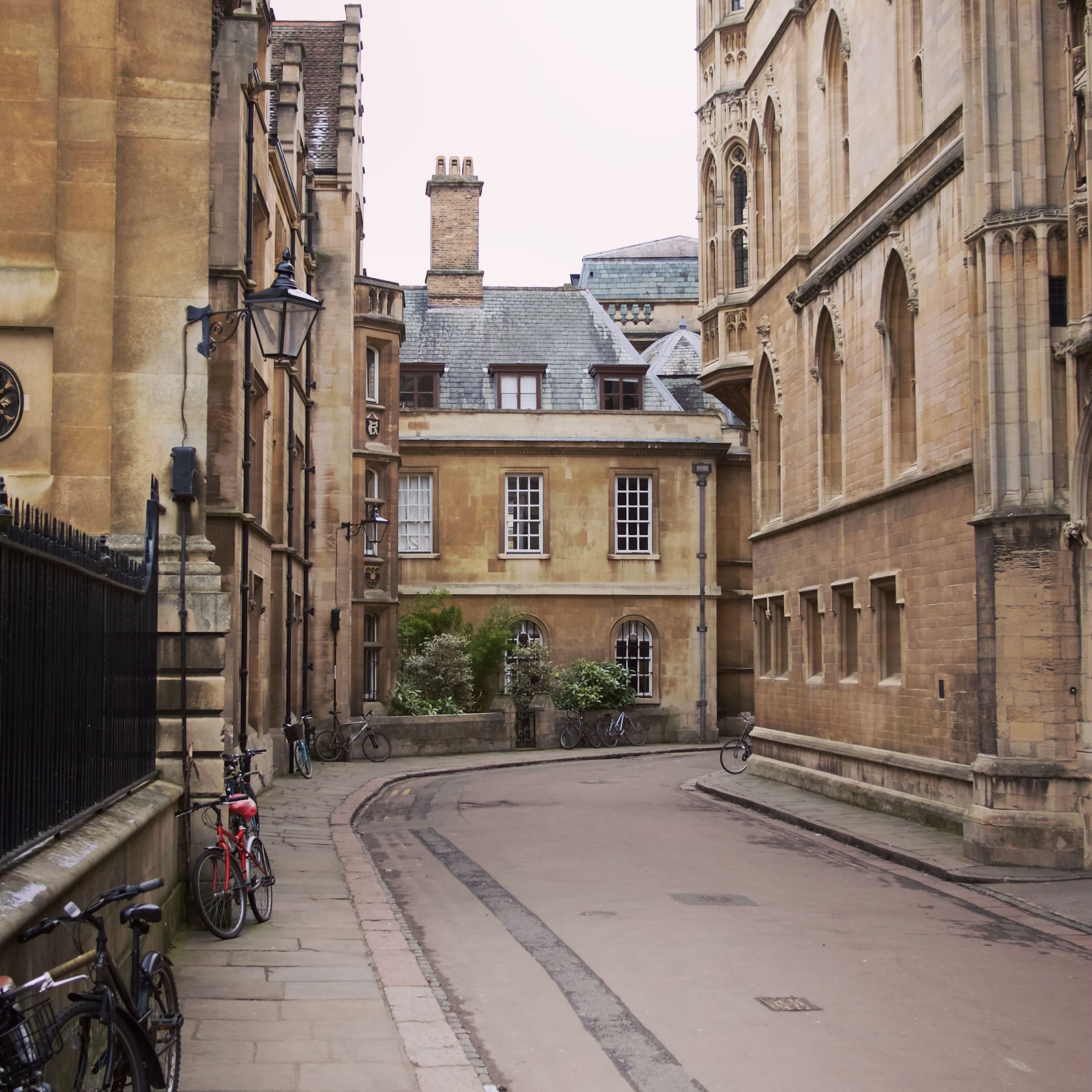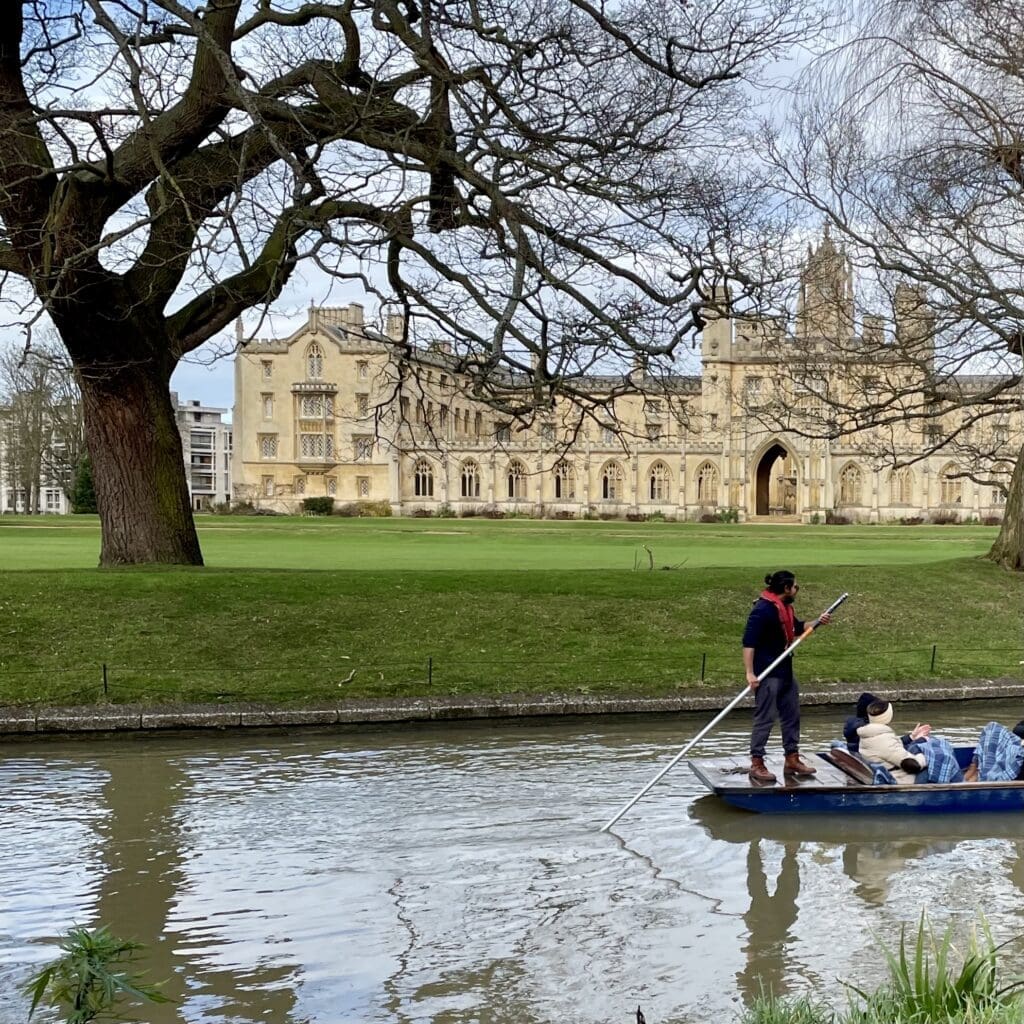How to Move to the UK on a Student Visa in 2025

Many Americans dream of moving to the UK on a student visa, but big changes made in the last year have made it harder. Here’s what you need to know.
A student visa offers an incredible opportunity to immerse yourself in the rich history, vibrant culture, and world-renowned academic environment that England has to offer. From iconic landmarks to centuries-old traditions, studying in England provides a truly unique experience that combines the best of both worlds—an exceptional education alongside a once-in-a-lifetime opportunity to explore a diverse and dynamic country.
However, if you’re in the process of researching or planning your journey to “uni” (university) in England, you may have already noticed that much of the terminology used in the UK differs from what you’re familiar with in the United States. From the structure of degrees to the names of common student services, the language barrier isn’t just limited to accents and slang!
While these differences may seem small at first, understanding the unique UK education system can save you time, confusion, and unnecessary frustration along the way.

Basic Terminology: Key Terms You Need to Know
College and 6th Form
In the UK, the term “college” is often used differently than in the United States. In America, “college” generally refers to an institution offering undergraduate education, often synonymous with “university” or “uni.” However, in England, college refers to a post-16 educational institution that students attend after completing compulsory education at age 16.
Students can choose to attend either 6th Form (which is often part of a secondary school) or a separate college to prepare for university or pursue vocational training. It’s important to note that this is a preparatory stage, and students who aim to attend university typically take courses that lead to A-Level exams.
A-Levels
A-Levels are the exams that UK students take in their final two years of 6th Form (typically ages 16-18) as part of their application process to university. These exams are highly specialized, focusing on specific subjects, and are an essential requirement for university admissions in the UK.
For international students, A-Levels aren’t always a requirement, but they can offer advantages, especially if you’re applying to a particular university or course. If you’re considering a specific program, it’s important to review the entrance requirements for international applicants, as some may accept alternative qualifications like the International Baccalaureate (IB) or U.S. high school diplomas.
Course
In the UK, the word “course” refers to an entire degree program or course of study, unlike in the U.S., where a “course” usually refers to a single class. For example, when someone says they’re studying a “course in Business Management,” they are referring to their entire degree in that subject, which typically spans three years for an undergraduate program.
Clearing
Clearing is a unique process in the UK that offers students a second chance to apply for university courses if they didn’t get into their desired program or missed the initial application deadline. It’s a valuable opportunity for students who want to change their course or university or for those who were not initially accepted into their preferred course. Clearing typically takes place during the summer after exam results are released, and it’s an important part of the admissions process for students who may need a backup option.
Revision
In the UK, the word “revision” refers to studying or reviewing material in preparation for exams. You’ll likely hear students talk about “revision guides” or “revision sessions” as they prepare for their exams. While in the U.S., “revision” is often used to refer to editing or making changes to written work, in England, it’s all about revising and reviewing academic content. So, if you’re looking for study materials, make sure to search for “revision guides” instead of “study guides.”

How do I apply to university in England?
Before you can apply for a student visa to study in England, you must first secure an offer of admission from a university for a specific course of study. Once you’ve been accepted, the next step is to apply for a student visa, but securing that placement is the first crucial hurdle.
Choosing the Right Course and University
Students interested in attending university in the UK can explore a wide variety of courses and institutions through the Universities and Colleges Admissions Service (UCAS), which is the central application system for higher education in the UK. UCAS is an excellent resource for international students, as it allows you to search for courses, read detailed program descriptions, and learn about different universities. It also provides step-by-step guidance on how to apply, helping you streamline the process.
Understanding the UK University Application Process
Applying to universities in the UK is quite different from the process in many other countries, including the U.S. While the specifics may vary between institutions, UK university applications generally focus on your academic qualifications, personal statement, and references.
It’s important to understand exactly what each university looks for in an applicant, especially when it comes to the specific course you want to study. Researching entry requirements for your chosen program will give you the best chance of making a strong application.
The personal statement plays a major role in the application process. It’s your opportunity to explain why you’re passionate about the course, what makes you a strong candidate, and how your background and experiences have prepared you for the challenges of university life.
Russell Group Universities: Plan Ahead!
If you’re aiming for a highly prestigious university, such as those within the Russell Group, which includes world-renowned institutions like Oxford and Cambridge, you’ll need to plan ahead. Applications for these universities tend to have earlier deadlines, often before the regular UCAS deadlines. This is especially true for competitive programs at schools like Oxford and Cambridge, where the process is highly rigorous.
To give yourself the best chance of acceptance, it’s critical to start researching and preparing your application well in advance. Keep track of important deadlines and make sure you meet all the requirements for your desired course. The earlier you start, the better prepared you’ll be to submit a strong application.
Is University free in England?
University is not free in the UK and the cost has risen in recent years. Tuition is capped at £9,250 for UK and EU citizens. For international students (non-EU), tuition fees vary significantly depending on the university and course of study. On average, fees range from £10,000 to over £38,000 per year.
The exact amount can differ based on factors such as the university’s reputation, the specific program you choose, and whether the course involves additional costs, such as lab fees or field trips. For example, medical and veterinary courses often have some of the highest fees, while other subjects, like humanities or social sciences, tend to be on the lower end of the scale.
When calculating costs, keep in mind that most undergraduate degrees in England are three years rather than four (unless you are required to take a foundation year). Don’t forget to factor in other living expenses, such as accommodation, food, transportation, and study materials, which can add up significantly. Costs will vary depending on the location of the university, with cities like London typically being more expensive to live in compared to smaller towns.
What is a foundation year?
As you explore different courses of study in the UK, you may come across the option of a foundation year. But what exactly is a foundation year, and why might it be part of your academic journey?
A foundation year is an additional year of study that students can take before beginning their undergraduate degree. It serves as a preparatory year designed to ensure that students have the necessary academic skills and knowledge to succeed in their chosen degree program. While a foundation year is not always mandatory, it can be a helpful option for several reasons.
Here are several situations where a foundation year might be required or chosen:
Meeting Entry Requirements: If you don’t meet the specific entry requirements for your chosen degree—whether it’s due to the subjects you studied in school or your overall academic qualifications—a foundation year can help bridge that gap. It provides you with the additional knowledge and skills you need to be successful in your undergraduate course.
Improving English Proficiency: For international students whose first language isn’t English, a foundation year can be a great way to improve language skills before embarking on a full degree program. Many foundation year programs include intensive English language courses and academic writing support to help students succeed in a higher education environment.
Changing Courses: If you decide later in your academic career that you want to switch fields—perhaps from one subject area to another that requires different knowledge or skills—a foundation year can provide the necessary background to transition smoothly. For example, you might take a foundation year in science before moving on to an engineering degree, even if you didn’t study these subjects in-depth in high school.
Other Reasons: Some students may choose a foundation year for additional academic support, to build confidence in their chosen field, or because they want a more structured start to university life.
In some cases, a foundation year may be a requirement, particularly for students who do not meet the entry requirements for a standard undergraduate course. Some universities offer foundation year programs as part of certain degree pathways, while others may recommend them for specific courses.
Be sure to check the entry requirements for your desired program to see if a foundation year is part of the process.

How much do student visas cost?
As of September 2024, the fee for applying for a student visa is £490 for the main applicant and for each dependent family member. In addition to the visa application fee, there are other financial requirements you’ll need to meet before you can be granted a visa.
Proving Financial Support for Your Studies: One of the key requirements for obtaining a student visa is proving that you can afford the cost of your course and support yourself during your studies. The exact amount you need to prove will depend on where you’ll be studying in the UK.
Course Fees: You will need to show that you can cover the tuition fees for your course of study, which should be outlined in your university acceptance letter or offer. Ensure that you have sufficient funds available to pay for your tuition before applying for the visa.
Living Expenses: If you have not been living in the UK for the past 12 months, you will also need to demonstrate that you can support yourself financially while studying. The required amount varies depending on whether you will be studying in London or outside of London:
- For courses in London: You will need to show that you have £1,334 per month for up to 9 months to cover living expenses.
- For courses outside of London: You will need to show that you have £1,023 per month for up to 9 months.
These amounts are intended to cover your basic living expenses, such as accommodation, food, and travel.
Financial Support for Dependents: If you’re bringing dependent family members with you to the UK, you will need to prove that you have enough funds to support each of them as well. The financial requirements for dependents are as follows:
- For dependents in London: You will need to show that you have £845 per month for each dependent (for up to 9 months).
- For dependents outside London: You will need to show that you have £680 per month for each dependent (for up to 9 months).
Be sure to account for the number of dependents you plan to bring and ensure you meet these financial requirements.
Immigration Health Surcharge (IHS): In addition to the visa application fee, you will also be required to pay the immigration health surcharge as part of your visa application. This fee grants you access to the UK’s National Health Service (NHS) during your stay. The current rate is £776 per year for students and each of your dependents.
Can I take out student loans to fund my education in England?
If you are from an EU country, Iceland, Liechtenstein, Norway, or Switzerland, you may be able to take out a loan from the UK government to cover tuition fees.
If you are an American, you may be able to pay for some or all of your education abroad with financial aid and/or student loans from the US Federal Student Loan Program. If you are planning to pay for university in the UK with US Federal Student Loans, you will need to ensure that your school participates in the Federal Student Loan Program. You can find a list of participating schools on the studentaid.gov website.
If you decide to remain in the UK, you will still be responsible for paying your loans just as if you resided in the United States.
Can I take my family with me on a student visa?
If you’re planning to study in the UK at the graduate level, it’s important to be aware of some recent changes regarding bringing dependents with you. As of January 2024, the UK has introduced new rules that will affect graduate students who were hoping to bring family members with them.
Under these new regulations, students studying at the graduate level (such as a master’s degree) will no longer be allowed to bring dependents (such as a spouse or children) with them to the UK. This means that if you’re planning to pursue a master’s degree, your family won’t be eligible to join you under the student visa.
However, there is a notable exception for students who are planning to study at the PhD or postgraduate research level. If you’ve been offered a place in a PhD or other research-based postgraduate course, you may still be able to bring your family with you to the UK. This exception allows for dependents to join students in certain high-level academic programs, but specific eligibility requirements will apply.
Can I bring my adult children with me as dependents on a student visa?
If you plan to bring your adult child with you to the UK while studying, there are specific rules regarding their visa application. In most cases, your child will need to apply for a dependent visa before they turn 18 in order to join you in the UK as your dependent.
However, if your child is already in the UK on a dependent visa when they turn 18, they can remain on the visa as long as you continue to provide financial support. This means that if your child is living with you in the UK and you are still supporting them financially, they can stay under the dependent visa without needing to apply for a different visa after turning 18.
Be sure to plan ahead and check the specific requirements for dependents to ensure that everything is in order before your child’s 18th birthday.

Can I stay in England after I have completed my study?
After finishing your studies in the UK, you may have options to extend your stay and continue living and working in the country. There are a few visa options available that allow graduates to remain in the UK for a longer period, depending on your circumstances.
Graduate Visa
One option is the Graduate visa, which allows international students to stay in the UK for 2 to 3 years after completing a degree at the undergraduate level or above. This visa is designed for those who want to work or look for work after graduation. It provides a great opportunity to gain work experience in the UK or explore job opportunities within your field of study.
- Duration: The Graduate visa is typically valid for 2 years for those who complete an undergraduate or master’s degree. If you complete a PhD or other doctoral-level qualification, the visa can last up to 3 years.
- Work Rights: You can work at any skill level during this period, giving you the flexibility to explore various career options.
To be eligible for the Graduate visa, you must have completed a degree at a licensed UK institution, and you must apply for this visa while you are still in the UK. Be sure to check the UK government’s Graduate visa page for up-to-date details on the application process.

Get the Guide
Moving to England: The Ultimate Guide to Moving Overseas and Living Your Best Life in the UK
Our expat guide has earned 5-stars on Amazon and now available in both paperback and ebook!
Skilled Worker Visa
Another potential pathway is the Skilled Worker visa, which allows you to stay in the UK for work purposes after your studies if you have received a job offer in an occupation that is listed as eligible. This visa is typically used by graduates who secure a role with an employer that holds a sponsor licence.
- Eligibility: To qualify for a Skilled Worker visa, your job must be on the list of eligible occupations, and you must meet the required salary threshold. The role should also require a certain level of skill and be offered by an employer who is licensed to sponsor foreign workers.
- Work Rights: This visa allows you to work full-time for your sponsoring employer and potentially switch jobs if the new role also meets the eligibility criteria.
If you’re interested in this option, it’s important to start looking for job opportunities and check whether your desired role qualifies for the Skilled Worker visa. You can find more information on the Skilled Worker visa on the UK government’s website.
If I go to university in the UK, can I become a UK citizen?
While a student visa allows you to live and study in the UK, it does not provide a direct path to UK citizenship. Even if you later switch to a different type of visa, such as a skilled worker visa, your time spent in the UK on a student visa will not count toward your eligibility for citizenship or indefinite leave to remain (ILR).
For example, if you spend 3 years in the UK on a student visa and then switch to a skilled worker visa, those 3 years on the student visa will not be added to the 5 years you need to apply for indefinite leave to remain. This means you would need to complete a total of 5 years on a visa that qualifies for ILR, such as a skilled worker visa, before you can apply for permanent residency in the UK.

What Worked For Us
School was one of the biggest stressors when preparing for our move to England. We knew we had to be in the UK before my daughter turned 18, and that meant moving in the middle of the school year. It took a lot of research and creativity, but it all came together perfectly.
We moved to England in January, with our daughters being 14 and 17 years old. Our younger daughter started her new school in Year 10 after the half-term break, and our older daughter finished her senior year through home study.
When deciding on a place to live in the UK, one of the “must-haves” was a university with low international fees.
Our eldest daughter was able to apply to university as an international student using her high school transcripts and SAT scores.
She didn’t need to take a foundation year or A levels, and because the course was three years long, the cost was comparable to in-state tuition in the US.
Moving to England on a student visa requires a little more preparation and research, but it can be an invaluable experience for you and your family.

Still have questions about moving to England on a student visa? Drop them in the comments!
IMPORTANT: I am not an immigration professional and I am not qualifies to give any type of legal advice. All information featured in this guide can be found on the UK Home Office website.









Leave a Reply